Gobioidei
This large suborder is chock full of tiny fishes that live on the bottom and hence have no need for a gasbladder. That's too bad. Let's meet the families, shall we?
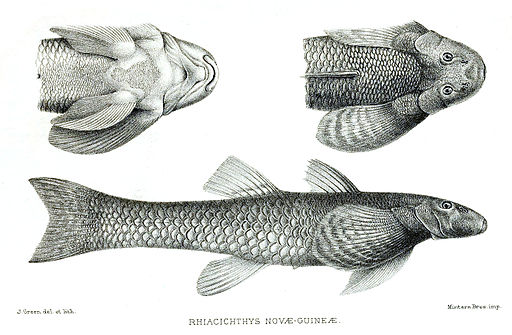
By J. Green [Public domain], via Wikimedia Commons
Rhyacichthyidae: Loach Gobies
There is one genus, Rhyacichthys, with two species. They get their name because they superficially resemble the loaches (Homaloptera), a genus of cyprinids, in both appearance and habitat. They are the only gobies with a lateral line.
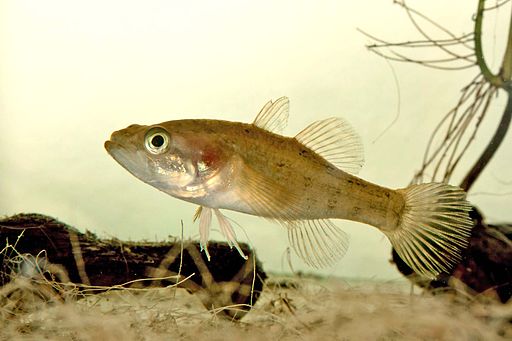
By Petrtyl (Own work) [CC BY-SA 3.0], via Wikimedia Commons
Odontobutidae: Freshwater Sleepers
As Nelson says, "this taxon may be distinguished...by the following characters: scapula large." So look for fish swimming around with prominent shoulderblades. Chances are you won't see them, because they're found in Asian waters.
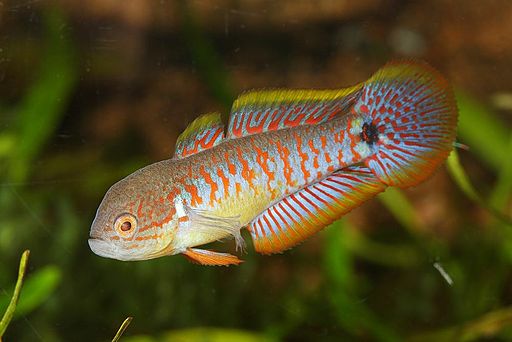
Dirk Godlinski, via Wikimedia Commons
Eleotridae: Sleepers
These narcoleptic fishes are distinguished from most other gobies in that they have separate pelvic fins, which means they haven't been modified into a sucker disc. Isn't that just too bad.
Xenisthmidae: Xenisthmids
The lower lip has a free ventral margin, whatever that means. Wikipedia calls them "collared wrigglers" because I guess "xenisthmids" wasn't hip or cool enough.
Kraemeriidae: Sandfishes, Sand Gobies
These fishes don't need body modification to look cool, they already have a bilobed tongue! It goes with their lower jaw, which is pointy and juts forward like a permanent goatee. Make sure not to make fun of the dorsal fin, which Nelson notes has "feeble spines."
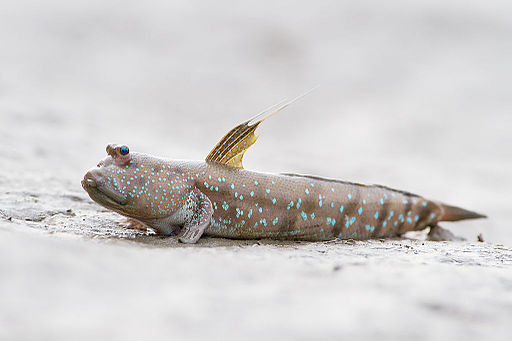
By JJ Harrison (jjharrison89@facebook.com) (Own work) [CC BY-SA 3.0], via Wikimedia Commons
Gobiidae: Gobies
This family is chock full of fun facts. It is the largest marine fish family, second only to Cyprinidae for largest fish family overall. It contains 210 genera and at least 1950 species, one of which is Trimmatom nanus, the smallest fish at 8-10mm when full grown. Some species have symbiotic relationships with sponges and shrimps, while others work to clean parasites off fellow fishes. The subfamily Oxudercinae contains the mudskippers, who are able to travel on land for short periods of time, moving from pond to pond in search of food or places to lay eggs.
Microdesmidae: Wormfishes
Does this fish have agromegaly? No, it just has a big lower jaw. They get their name from their elongate body type.
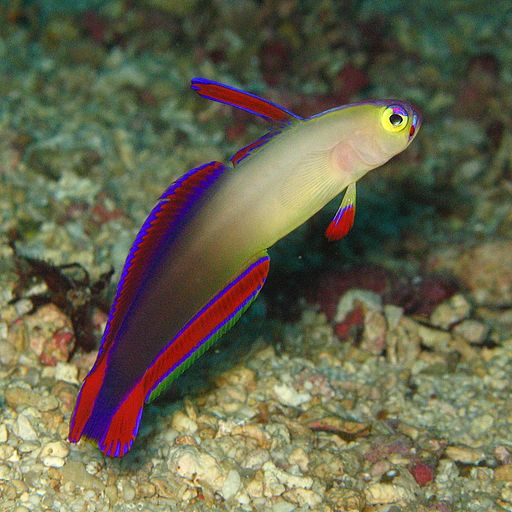
By TANAKA Juuyoh (Elegant firefish / Decorated dartfish) [CC BY 2.0], via Wikimedia Commons
Ptereleotridae: Dartfishes
These fishes have jaws that are almost vertical, and not much else. I'm sure they're quite nice.
Schindleriidae: Infantfishes
There is one genus, Schindleria, with three species. These fishes are neotenic, which means they retain larval characteristics into adulthood. They are transparent, retain cartilage and dermal bones, and have larval kidneys. Nelson says one species is the lights and possibly shortest lived vertebrate.